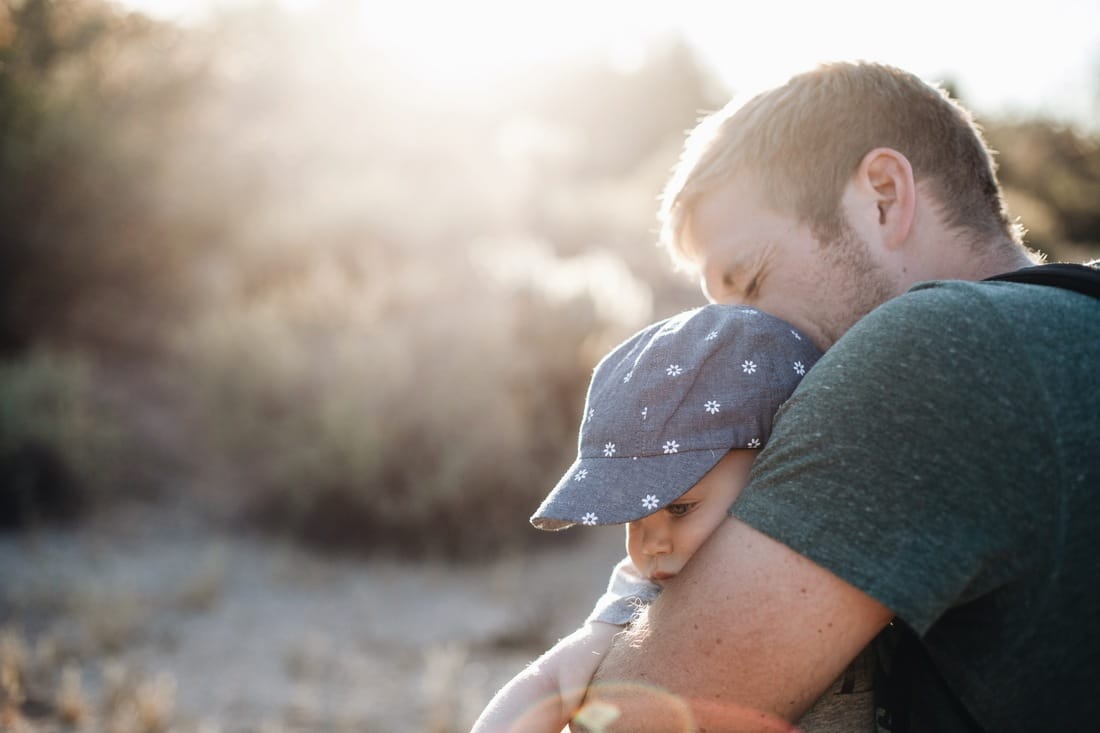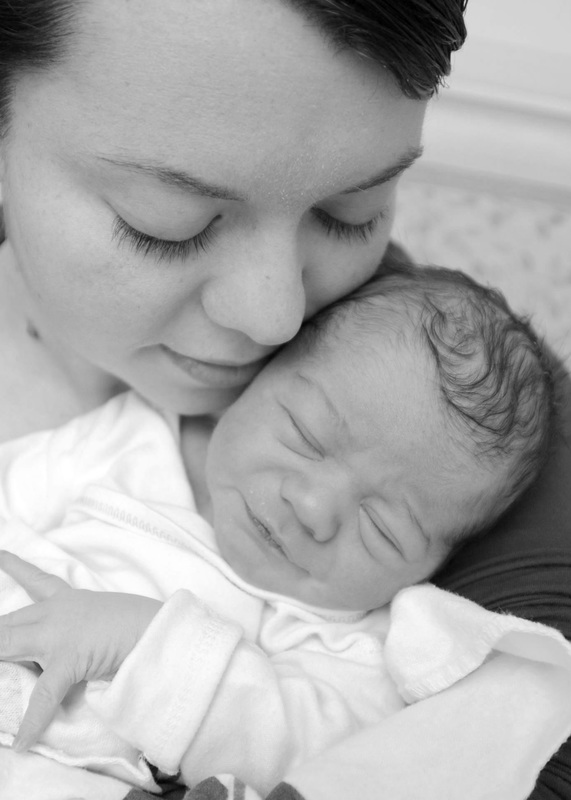|
When people learn that we have ditched timeouts, one of the most frequent responses goes something like this: "Well, how do you expect them to listen to you?" or, "He's going to walk all over you, he's going to be out of control." I am here to tell you that this is a frequent myth that is connected to gentle parenting. There is a heavily circulated myth that supports the idea that unless child are punished severely (spanking, timeouts, etc) that they will not learn the lesson. That, my friends, is a myth. Gentle parenting does not mean lax discipline. I repeat: gentle parenting does not mean lax discipline. Sure, spanking and timeouts can be effective. Of course, they work. Who wouldn't want to comply in order to avoid being spanked? Spanking works, but that doesn't make it right. So, what can a parent do to discipline their child in a gentle yet effective way? (Fun fact: discipline means "to teach") Effective alternatives to time outs and spankingTime in
Instead of having a time "out" to calm down, try a time "in" where the child is not separated from the rest of the family. This is helpful because a child can calm down without feeling ostracized from the family. Talking Many, many tantrums have escalated due to misunderstandings. Tantrums get even more out of hand if I join in the chaos with yelling and craziness. If I lose my temper, then there is no way to solve the problem peacefully or easily. If I make it a point to to have a conversation and ask bluntly specific questions (Why did you take your brother's milk?), I usually can figure out why my child did X, Y, or Z behavior. Learning the why often leads to a good opportunity to have a conversation about the proper behaviors with our child. Of course, this doesn't always work and it definitely doesn't work so great with toddlers, but it's good to keep in your parenting toolbox. Redirection This is a great option for younger children, especially toddlers. Remove the temptation from them and save yourself the sanity too! Consequences that "fit" I want to use disciplinary methods that my child can actually learn from. For example, if my son dumps his milk on the floor, I do not send him to time out. Instead, he must clean it up. I teach him to grab a cleaning rag, how to wipe it, and what to do with his rag afterwards. This consequence will actually teach him, rather then just punish him. Hug it out Nurturing touch, one of the principles of Attachment Parenting, plays a huge role in the peacefulness of a home. Sometimes, a child's behavior starts to spiral out of control when his/her love cup is running low. A simple hug can go a long way to improving a child's behavior. What are some effective gentle discipline methods that you have used? Comment below!
0 Comments
Who doesn't love being happy? People seek happiness in all that they do. Sometimes they find happiness in all the right places, and sometimes, sadly, people waste time looking for happiness in all the wrong places. One surprising font of happiness is the iconic family tradition. It's not so much what the tradition is, but rather just the fact that it is a family tradition. The science behind why this works: The Association of Psychological Science published an article called Waiting for Merlot: Anticipatory Consumption of Experiential and Material Purchases. The study revealed that material purchases offer far less joy than experienced purchases. So, that means a vacation or a day spent zip-lining offers more lasting joy than a day spent shopping for material goods. The experiences make us happier than the goods. Why? It's all about the lead up. As our brains process waiting for an experience, we are generally happy and excited. The brain does not process the waiting period for a material possession with the same depth of feeling. Plain and simple: experiences make us happier and that happiness is far more lasting than the excitement of material item. So, what does this have to do with family traditions? What are family traditions if not an experience? Family traditions create joy because they are an experience. 4 ways family traditions contribute to familial happiness
Family traditions we love Every family has their own traditions, but here are a few of my favorite.
While "attachment parenting" has become somewhat of a buzzword, Attachment Parenting is actually a movement that was founded almost seventeen years ago. What is Attachment Parenting?Attachment Parenting is a movement that advocates for and supports a strong, secure attachment between a caregiver and child. Attachment refers to the emotional bond between parent and child. Why is this attachment so important? The way a child attaches to his/her caregiver affects the way s/he will shape all future relationships. How does a secure attachment affect a child?Reseach shows that children with secure relationships with their parents are:
What are 8 principles of attachment parenting?Attachment Parenting garners its strength from eight scientifically-supported principles. More than just principles, these are tools that help guide parents in their parenting journey.
While Attachment Parenting is typically geared towards infants and young children, the theories behind Attachment Parenting benefit all relationships. Whether you are just starting your journey with Attachment Parenting or you have been applying these theories for years, it never hurts to have a little refresher on how to apply each principle to your own unqiue parenting journey. Some of my most memorable childhood moments were connected to family Christmas traditions. I think part of the happy associations is that there was such a joy around the holidays in my home. So much joy I could taste it. So much joy.
As a mother, I can now appreciate how much effort goes into holidays in order to make them so magical for children. Here's a list of ways to infuse some extra joy into your holiday season. Bake cookies Baking Christmas cookies is a classic holiday tradition, but for good reason. Not only do you get yummy treats, but the process is worth more than any cookie. It reminds me of the quote, "The journey is just as important as the destination." Let your children set the pace, blast the Christmas tunes, and enjoy the time spent in together. Extra points if you make batches of cookies for friends and neighbors Spread cheer Love and joy are two things that cannot be depleted by giving it away. In fact, it's the opposite. The more love and joy you share, the more you get in return. Choose a cause and spread cheer.
Have a wrapping party Involving your kids not only provides a fun activity but also helps to teach the importance of giving. It's okay if their presents aren't wrapped Pinterest-perfect. A gift wrapped with love is the best kind. Hot Cocoa Nothing screams winter joy quite like a cup of warm hot cocoa. Making cocoa from scratch is just another excuse to spend some quality time in the kitchen. Try these recipes:
Get outside There's nothing quite as magical as a walk through the snowy woods, but if woods aren't your thing, try a skating rink, ski slopes, or good old fashioned sledding. Research continues to show how important the great outdoors is for kids' mental, emotional, and physical health. How do you bring joy to your holidays? Comment below, we'd love to hear from you! Our kids hear our voices a lot. In fact, they've been hearing it since 18 weeks in the womb (babies can actually hear sounds while in the womb...amazing!) However, not everything we say is nice and pretty and wrapped up with rainbow ribbons - sometimes we just have to get down to the business of day-to-day life.
Put your coat on. Stop hitting your brother. Eat your broccoli. Do you have to go potty? Are you thirsty? Let's go get in the car. Leave your diaper on. Time for bed. Just try to go potty. Stop throwing blocks at the window. Stop taking ornaments off the tree. Are you sure you don't have to go potty? So yeah... our days can be filled with necessary conversations. We need to talk about potty, food, and house rules, but children need more than that. They need meaningful conversations that can further strengthen your bond with them. Specificially, your child needs to hear these eight things from you. I love you It goes without saying that you love your child. Apart from showing love, your child also needs to hear the words. I love you. Why? Hearing the words helps to reinforce to your child that they are loved unconditionally, independent of their own successes, failures, and merits. It lets them know you love them no matter what. Yes, actions are incredible indicators of what we really feel, but for children, especially little ones, those precious three words gives them something to hold onto when they need comfort or encouragement. Studies show that teenagers who grow up not hearing those words from their parents are more likely to have self-esteem issues and/or equate being loved with performance. I'm sorry When one sibling hits another, what do most parents do? Somewhere in their discliplining is ususally a requirement to apologize to their sibling. We do that because it so important to teach young ones how to act after hurting another person. Modeling that behavior can be difficult. If we hurt our children (i.e. loosing temper and yelling), we need to model what we want to see. Admitting we as parents were wrong is never easy, but children benefit from hearing "I'm sorry." Not only does that help mend your own relationship, but it teaches children that it's okay to make mistakes but mending a relationship starts with a sincere apology. Please forgive me Along with "I'm sorry" letting your children hear you ask for forgiveness teaches positive interpersonal behaviors. Asking for forgiveness is not easy; even many grown adults struggle with it, but teach your kids early that pride is not more important than mending a relationship. Try Again Kids learn through repetition, but they can get easily discouraged. Encourage your child by cheering them to try again. Whether it's learning to tie shoes, or bake a cake from scratch, or build a house of cards, let them know its okay to fail one, two, or seven times. Please No one likes to be bossed around. The way we speak to our children is the way they learn to speak... regardless of how we teach them to speak. They do, what we do. Thank you For the exact same reason we should say please, "thank you" teaches them how to speak to others. It also shows them respect. Plain and simple. What do you think about _____________? There's no better way to get inside a child's mind then to ask them direct questions. A while ago, my older son was acting strange. He was mostly acting out and acting a little aggressive towards his brother. My first instinct was to get angry and label him as being naughty. But I paused for a moment, and in a calm voice, I said, "Hey buddy. What's wrong?" At first he resisted the conversation and kept struggling. But he eventually opened up and told me that he was sad. We got to the bottom of the problem, but I never would have known about it had I not just asked. Let's do [favorite activity] together! To a child, no gift is more precious than time spent together. How many times has your son or daughter begged, "Daddy, come play catch!" or "Mom, look at this tower I built." I know I personally get swept up in the day-to-day duties of motherhood and homemaking. I know I utter those words "in a minute" way too many times. I try consciously to do more of their favorite activities with them, and when I do I see a remarkable boost in their mood and behavior. Resist the urge to clean or work or read emails or check Facebook one too many times. Give in and enjoy those moments together. Let that be a Christmas gift to your child this year - the gift of time. The way we talk to our children becomes their inner voice. What is peaceful parenting?
Peaceful parenting consists of philosophies and theories in which parents use love and the parental-child bond to guide children on the right path in life. Studies continually report that children are more receptive to parental guidance when parents instruct (rather than punish) and empathize with them. These children are capable of internalizing self discipline and as a result are happy children. Why peaceful parenting? Peaceful parenting works. We've all heard the saying "If Mama ain't happy, ain't nobody happy" and there is a truth to that. I know firsthand that when I wake up on the wrong side of the bed, I bring a gloomy cloud that looms over us all. When I overreact to small messes, I know I cause my children to spiral into emotional messes. They are little and rely on me to teach them proper emotional responses. How can I teach them if I myself cannot control emotions? I also know that when I am cheerful and chipper (or at least force a smile when I'm over it all) that I can spread that joy to my kids. I have the power to be their calm. When they see me react with patience in a calm manner, they are able to hold onto peace. If I am the barometer and set the mood of the day, then following peaceful parenting practices helps me create a peaceful home enviornment. A peaceful home allows children to thrive and be happy. Peaceful parenting does not at all mean permissive parenting. Permissisve parenting results in unhappy children who constantly tests the already-lax limits of their parents. Children are hardwired to enjoy limits; it helps them feel secure. On the other hand, strict parenting frequently results in children who are angry because they cannot ever please their parents. These children grow to resent all parental guidance and as a result, they do not (and cannot) internalize self discipline. What does it mean to be a peaceful parent? At the heart of peaceful parenting is the desire to teach our children and bond with them, guided by love.
It's not easy to wake up one day and decide to do away with harsh punishments and timeouts. Peaceful parenting requires work, a daily reaffirmation of your committment. There will be times when you are tested. You will want to yell at your kids and stick them in a time out. But stick with peaceful parenting and you will see that not only will your children become happier, but you will as well. |
About KatieWife & Mama with a passion for peaceful parenting, natural living, homeschooling... and my daily café au lait. Archives
July 2020
Categories
All
|







